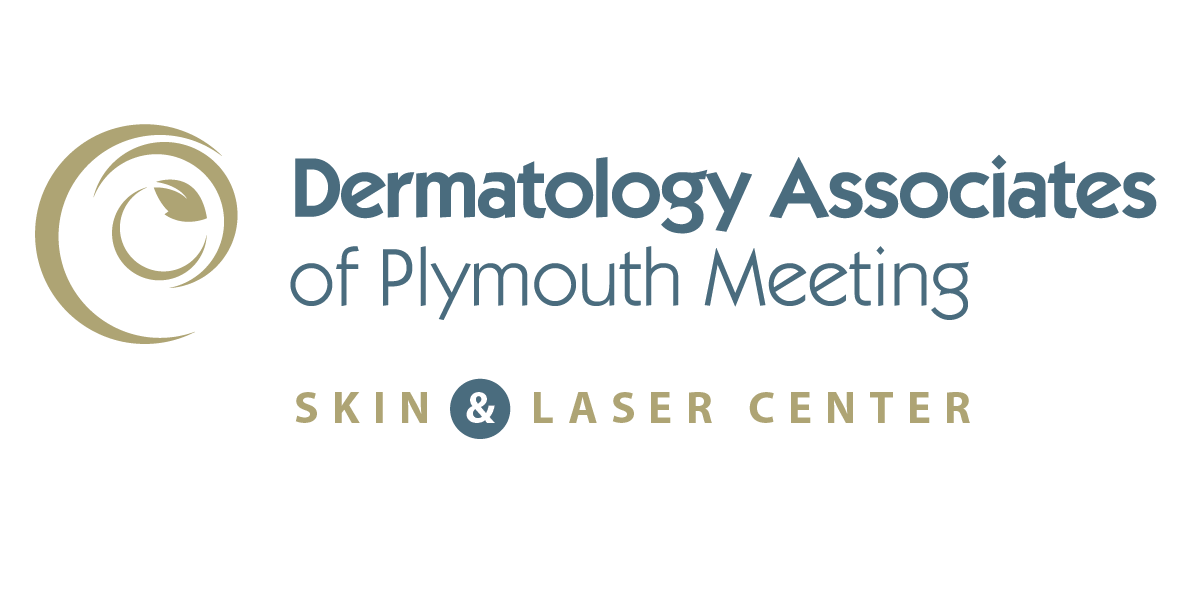Understanding Different Types of Psoriasis and Treatment Options

Psoriasis is a persistent skin disease commonly associated with scaly patches of skin or red areas. While these symptoms are possible with the most common form of psoriasis, plaque psoriasis, this condition comes in many forms and can impact everyone differently.
One of our own board-certified dermatologists, Dr. Jonathan T. Wolfe, recently spoke with the Philly Voice, noting that “new research suggests that psoriasis is a systemic disease that can affect any part of the body in which inflammation can spread.” He also discusses the different types of psoriasis and their impacts on the body. Dermatologists typically diagnose psoriasis following an examination of the skin, nails and scalp, and sometimes through the help of a skin biopsy. Dermatology Associates of Plymouth Meeting specializes in treating psoriasis by understanding its many forms and providing effective treatment options.
Plaque Psoriasis
Plaque psoriasis is the most common form of this skin condition, beginning with small red bumps that can grow larger and lead to the formation of thick, silvery scales. Approximately 80 percent of individuals with psoriasis have plaque psoriasis. These bumps and areas of inflammation can form on any part of the body, but patches typically form on the elbows, knees or scalp. The way plaque psoriasis manifests on the body varies by individual and can range from a few lesions to inflamed patches across the body.
Erythrodermic Psoriasis
Erythrodermic psoriasis is the least common form of psoriasis and can pose other health risks, especially to individuals with cardiac disease. This form of psoriasis causes large parts of the body to redden and become itchy and painful, and skin will sometimes exfoliate, or peel off, in large sheets. Erythrodermic psoriasis can be life-threatening, as it leads to swelling, fluid retention and infection. In some individuals, it can also increase the risk of pneumonia and congestive heart failure.
Nail Psoriasis
Nail psoriasis is a localized form of psoriasis which can be difficult to treat. It affects the nails by causing small pits in the nail’s surface and leading them to loosen, thicken or crumble. Nail psoriasis can also cause nail discoloration.
Guttate Psoriasis
Guttate psoriasis is similar to plaque psoriasis, and typically impacts the torso or “trunk” of the body. Lesions appear more rounded or coin-shaped than plaque psoriasis. Guttate psoriasis can result from strep or other bacterial infections.
Inverse Psoriasis
Inverse psoriasis is another localized form of psoriasis which occurs in the groin area, under the breasts or in the armpits. Because of its location, it is frequently mistaken for a fungal infection.
Pustular Psoriasis
Pustular psoriasis is identifiable by raised white bumps or “pustules” surrounded by red skin. The pustules contain noninfectious puss, and symptoms of this psoriasis may include fever and chills.
Potential Triggers and Treatments of Psoriasis
Psoriasis is a chronic skin condition for which there is no cure, however, lifestyle changes can help minimize flare-ups, and treatments can help manage symptoms and restore a higher quality of life. “Triggers of psoriasis include injuries, infection, stress, smoking, heavy alcohol use and certain blood pressure medicines,” Dr. Wolfe says. “A family history of psoriasis is also a common theme.” Flare-ups may also increase in the winter, when skin is drier.
Treatment is determined based on the type and severity of the psoriasis, as well as the patient’s health, age and lifestyle. Dermatology Associates of Plymouth Meeting offers a variety of treatments, ranging from topical medications to light therapy treatments.
Schedule a consultation to achieve the healthiest skin of your life
Contact UsTopical Medications
Cortisone creams, ointments and lotions can help control psoriasis in many patients and should be used with specific instruction. These topical medications utilize steroids and have specific preparations depending on the location of the psoriasis. Other topical medications include:
- Scalp treatment through non-prescription and prescription shampoos, oils and more, which contain coal tar, salicylic acid or cortisone
- Retinoids, or prescription vitamin A-related gels
Light Therapy
There are many forms of light therapy which have been shown to slow the rapid growth of skin cells that leads to psoriasis. Patients are directed to carefully sunbathe, and at times, Narrowband Light Therapy or PUVA (Psoralen + UVA), which uses carefully measured UVA light, are chosen as effective treatments.
Oral medication
Oral medications such as methotrexate and cyclosporine are sometimes recommended when other treatments have failed.
Biologics
Biologics are new injection treatments that are changing the way we treat psoriasis. There are multiple agents, which our doctors can review with you to discuss benefits and side effects.
At Dermatology Associates of Plymouth Meeting, we are psoriasis care and treatment experts who are eager to help match our patients with their ideal treatment and management options. Please schedule an appointment where we can learn more about your unique case of psoriasis and develop a personalized plan to help you live more comfortably.
